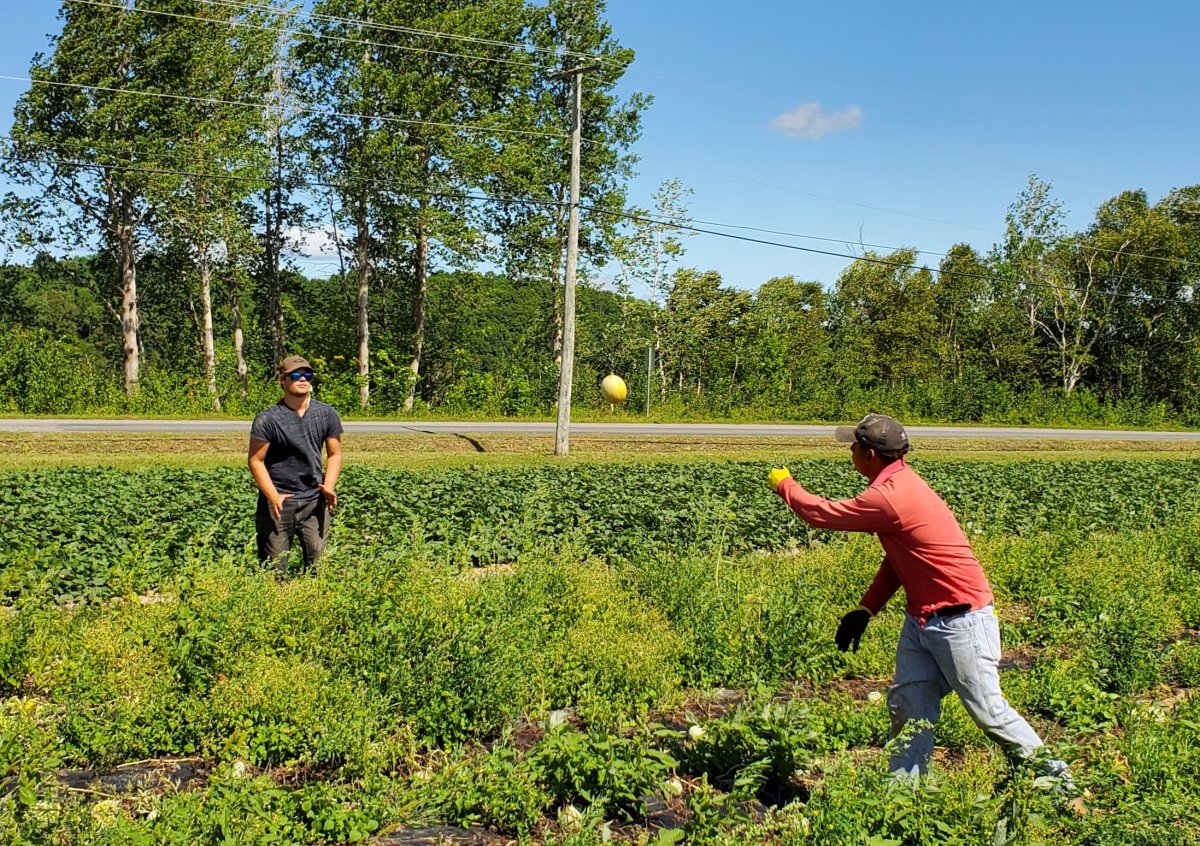Farmers in New Brunswick want the provincial government to reconsider COVID-19-related quarantine rules for temporary foreign workers.

They say they’re concerned about the physical and mental well-being of their vital employees.
In early March, the province announced temporary foreign workers would be required to self-isolate for 14 days in a hotel or facility that included bathroom, bedroom, laundry and kitchen facilities for each individual worker.
The workers are exempt from Canada’s initial three-day quarantine requirement, but in many other provinces, workers complete their two-week isolation in their farm quarters. New Brunswick had similar regulations last year.
Tim Livingstone owns and operates Strawberry Hill Farm, a certified organic farm in Pembroke, N.B., near Woodstock.
He said seasonal agriculture workers play a big role in his operation.
In 2017, Livingstone said one of his workers fell ill and required time in hospital. The man recovered, but was convinced his illness was caused by a Canadian diet his body could not handle.
Livingstone said they would be much safer isolating on his farm because he can get them the food they need.
“One of the concerns that I have, if they’re stuck in a motel somewhere, I’m not going to be able to look out for them the same way that we can when they’re here,” Livingstone said.

Get breaking National news
“And I’m worried that if they aren’t making their own food, how are they going to eat something that they’re used to?”
Livingstone said his labour costs rose 50 per cent in 2020 as he hired locally when workers were not available to him. This year he’s hoping to have at least five seasonal workers from outside Canada.

Farm groups estimate the quarantine rules will cost farmers $6,000 per worker before they even set foot on a farm.
Point de Bute, N.B., vegetable farmer Kent Coates wants four workers this year but admits he may downsize under current guidelines.
“Nova Scotia’s slated to give their seasonal workers vaccinations,” Coates said. “PEI has been providing housing for their workers and food, right through the quarantine period, and delivering them to the farmers ready to work. And in New Brunswick, we seem to be putting more and more hurdles in front of our producers.”
Coates said he met with a farmer two weeks ago who had spent $170,000 to upgrade his lodging facilities to meet federal and previous provincial standards, but under the new guidelines, only one person can stay in them.
Advocacy groups say they had no consultation about the quarantine plan. Agricultural Alliance of N.B. President Lisa Ashworth said New Brunswick made the change despite admitting last year’s quarantine-on-site regulations were effective.
“So we’re looking at 14 days in a motel after potentially four or five days of being on the road and on airplanes and things,” Ashworth said. “And they’re locked up in solitary confinement. It’s not good for mental or physical health.”
Livingstone and Coates said the workers are crucial to Canada’s food security.
“It really, really makes me upset when people call them temporary and when people refer to them as foreigners because they live here six months of the year,” Livingstone said. “They’re a key part of our farm family. They’re anything but temporary.”
“The main reason for the changes to the self-isolation directive for Temporary Foreign Workers is the (coronavirus) variants,” said Bruce Macfarlane, Communications Director, Department of Health.
McFarlane said temporary foreign workers “are not targeted, specifically,” but in many case are coming from countries where COVID-19 variants have been detected.
“The measures required to deal with COVID-19 have changed, as the virus has evolved since last summer and we have a year’s worth of experience and research on which to draw,” McFarlane said. “Our protective measures will likely change again as the vaccine becomes more widely administered.







Comments